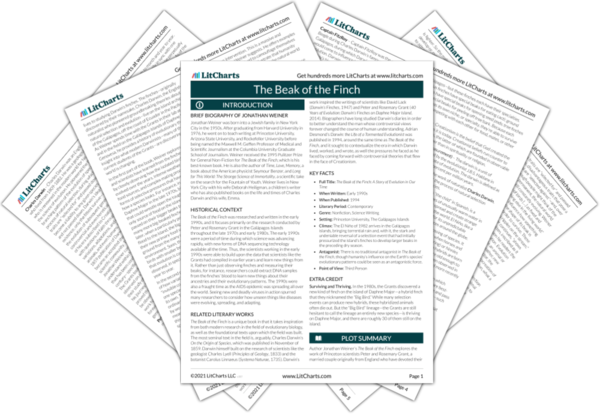Weiner suggests that Darwin’s belief in humanity’s unique, innate “wonder and glory” is useful for modern people to consider and internalize. There is always the chance that humanity will wind up negating its own future chances for survival through the struggle for power or hubris. But hopefully, as humanity continues to grow and evolve, we can add to what the generations before us have learned for the better, as we were born to do.
